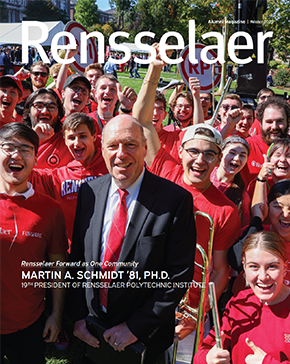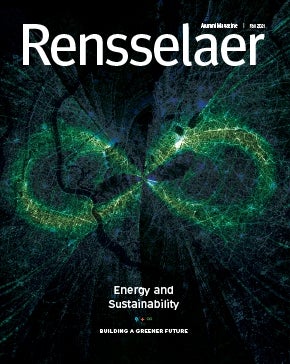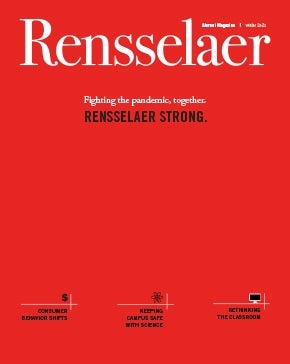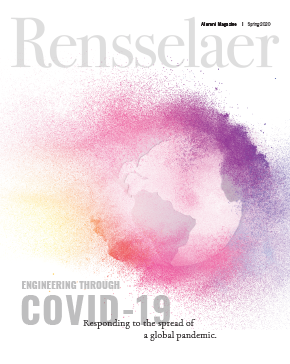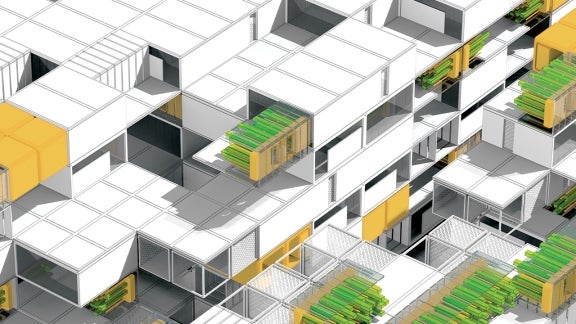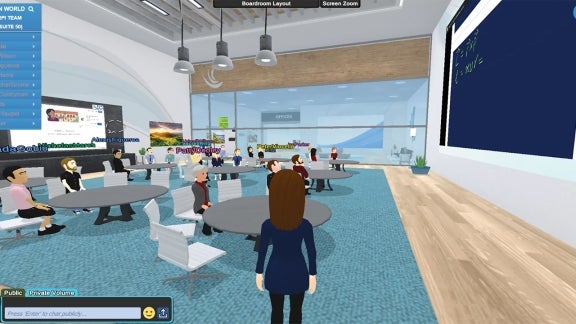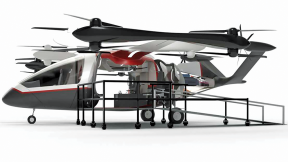
Sustainable Architecture
Recycling Plastic Bottles for Disaster Relief
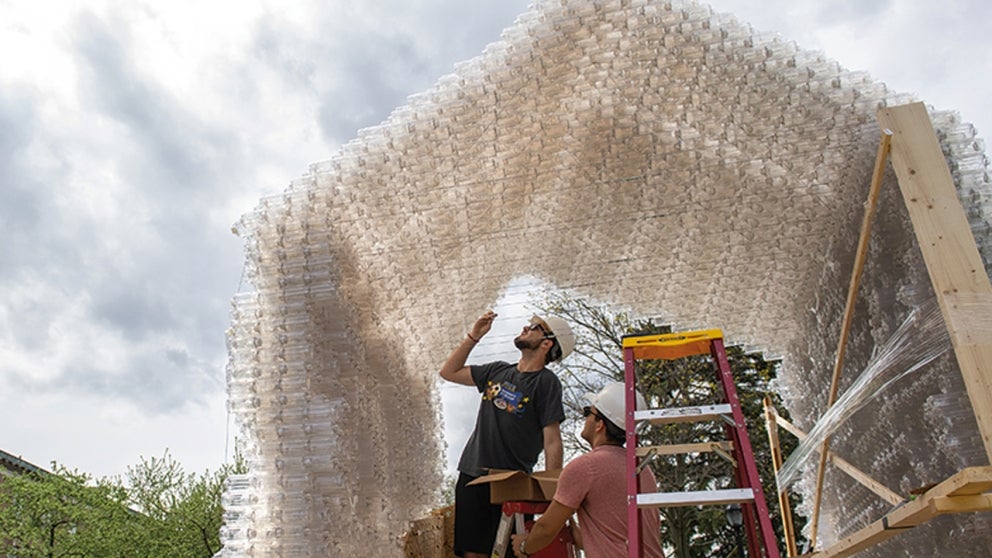
Powerful hurricanes and earthquakes have wreaked havoc in the United States and around the world in recent years, often leaving people stranded for months and even years without access to water, food, and shelter. A unique collaborative project at Rensselaer seeks to provide a sustainable solution, while also considering the environment.
After a disaster strikes, first responders and other aid organizations mobilize to send needed supplies such as water, food, and medicine. Bottled water is sent by the tons, but all too often, the empty plastic bottles end up in the trash stream.
The goal of the project is to re-use the empty bottles to construct and structurally test different structural components (walls, columns, and roofs) and then design and build a prototype for emergency shelters for displaced populations under conditions of distress.
Students and faculty in the Schools of Engineering and Architecture are conducting a multifaceted research project that includes structural and architectural design, along with strength analysis, of revolutionary transitional shelter designs built using the patented plastic interlocking bottles of Friendship Products LLC, led by inventor Timothy Carlson. The collaborative team is led by Mohammed Alnaggar, assistant professor of civil and environmental engineering, and Lydia Kallipoliti, assistant professor of architecture.
According to Kallipoliti, the design studio, Second Lives | After Bottles, functions as a design-build think tank, bringing together architecture and engineering students and professors in a cross-disciplinary platform to work collaboratively and create innovative strategies for material recycling.
The aim is to foster dialogue on topics relating to recycling of industrial products as building materials and on sustainable building construction. “During the design studio, we are investigating several prototypes presenting variable solutions of construction and deconstruction of small inhabitable spaces using the bottles manufactured by Friendship LLC,” says Kallipoliti.
The idea is to use the bottles as sturdy, low-cost, easily assembled building blocks. Each modular unit slide-locks with other units to form strong wall and building structures that can be filled with dirt, sand, or other materials to form a sturdy structure without the use of mortar. The Friendship bottles are able to interlock without joints due to their embedded creases.
“This project presents a unique collaboration to optimize function and shape,” says Alnaggar. “The structural engineering research focusing on studying all the mechanics of the interlocking between the bottles and its scaling up to the full structural scale provides the architectural engineers with the needed properties to create not only an aesthetically appealing structure, but also a structurally sound and safe one.”
